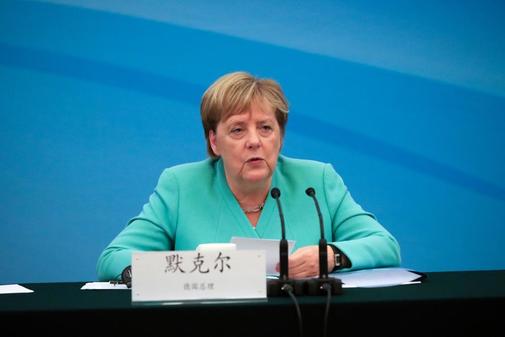- Macroeconomics: Trade war breaks out before the G7
If Germany is constipated, the rest of Europe sneezes. The numbers have been warning for months and the passage of time only increases the restlessness. With the possibility of a recession around the corner , German industry production fell 0.6% in July compared to the previous month, according to provisional data released yesterday by the Federal Statistical Office (Destatis) collected by Efe . "In view of this weak start of the second semester and an absence of the expected recovery of the order book, there is still no improvement in the situation in the industrial sector," the German Ministry of Economy acknowledges in a statement .
The forecasts are nothing rosy and the pressure on Berlin is multiplying these days. Markets are very sensitive to all macroeconomic indicators. Macro estimates are weak for the whole of the Eurozone and from Brussels and Frankfurt follow requests for the country to take advantage of the wide fiscal margin available to increase spending, generate demand and revive a more than weak economy.
The latest figures from the European Commission, in its summer forecasts, pointed to a more than worrisome 0.5% growth for the whole of the year in Germany, well below the 1.2% expected for the Eurozone as a whole. "Some countries can use their fiscal space to improve infrastructure, their broadband. Increase public spending to fight contraction," said the French Christine Lagarde a few days ago, most likely the next president of the European Central Bank.
The ECB, like the Commission and most European study services, are concerned about what they see. There is no panic, there is no alarm and nobody dares to anticipate a crisis or a new recession. Nor does the US Federal Reserve, as yesterday reiterated its president, Jerome Powell. But the indicators, advanced or consolidated, point to curves. Donald Trump's commercial war against the rest of the planet, sometimes in turns and sometimes against everyone at once, is taking its toll. In China and Germany, industrial powers, and as a consequence, throughout the Old Continent.
On the brink of recession
The economy of the euro zone registered a 0.2% growth between April and July compared to the previous quarter, when the increase was 0.4%, according to the final data published this Friday by Eurostat, the statistical office of the EU. And Germany, in particular, is on the verge of recession, understood as two consecutive quarters in negative, after closing the period with a contraction of 0.1% of GDP, compared to the growth of 0.4% with which the course started .
In the EU as a whole, the economy registered 0.2% growth between April and June, three tenths less than between January and March. With more perspective, when compared to the same period last year, the year-on-year expansion of the EU slowed down to 1.4%, two tenths less and, importantly, the worst data since late 2013. The EU presumes of chaining more than two tens of quarters in positive, but no one escapes the cooling.
"The answer is obviously yes, what happens is in the air. Ministers read the documents, see what happens in the neighbors and the signs of the economy. In Chantilly , during the G7, the economic situation was discussed as well I imagine that when Mario Centeno informs colleagues next Friday, there will be a debate about that. I can't predict how deep. " A high European source speaks with the Eurogroup meeting next week in Finland in the lead. Especially since the negotiation of Brexit is, once again, stranded and we head towards an exit without agreement on October 31, with unpredictable consequences, but certainly very bad, for the economy of the still 28.
The ministers will try to "growth and employment" , the first thematic point of their agenda. It is not a talk about the cycle, but all the sources consulted agree that the situation will be part of the discussion. And the same goes for the elephant in the room, something that is mentioned in the think tanks, in the halls, in conferences but that nobody dares to take out directly by the perpetual opposition of 'hawks' like Germany, Holland or Finland, which This semester holds the temporary presidency of the EU: fiscal policy and the structure of the so-called European Semester and the Stability Pact, which many want to reform, meaning relax.
According to the criteria of The Trust Project
Know more- Germany
- European Central Bank
- Crisis
Macroeconomics The Bundesbank warns that Germany could go into recession in the third quarter
GDP contraction This will affect the Spanish economy the German prick
FrenazoAdiós a la austeridad ... but only in Germany: This is the self-rescue on account of public spending that Merkel last

